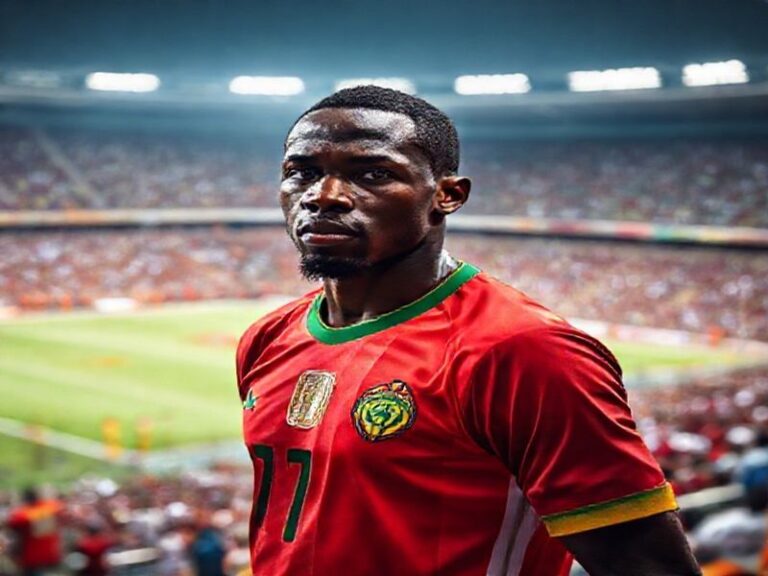Jayne Kennedy: The Global Gladiator Who Turned American Football into a Mirror for the World
Jayne Kennedy: How One American Gladiator Became a Global Rorschach Test in High Heels
PARIS—If you mention Jayne Kennedy in a smoky bar on the Rue Oberkampf, the locals will assume you’re talking about the latest crypto-scandal or perhaps a new strain of Bordeaux. Tell them she was the first Black woman to anchor network sports in the United States, and you’ll watch the shrug travel from shoulder to shoulder like a relay baton of continental indifference. Yet Kennedy’s 1978 breakthrough on CBS’s NFL Today rippled outward in ways Americans rarely notice and Europeans pretend not to care about—until the bill arrives.
Picture the scene: Tehran, late ’78. Revolutionary students storm the U.S. embassy, hostages in blindfolds, chants of “Death to America” looping like a broken cassette. Meanwhile, on an illicit satellite feed, Jayne Kennedy—poised, luminous, and unmistakably Black—breaks down Sunday’s blitz packages between Budweiser ads. The cognitive dissonance wasn’t lost on the Ayatollah’s censors, who clipped her segments for “morals violations” (apparently shoulders are gateway drugs). In that moment, Kennedy became an accidental geopolitical litmus test: proof that American pop culture could penetrate even the thickest iron curtains—and that its messengers didn’t all look like the Marlboro Man’s tax accountant.
Zoom to Lagos, 1980. Nigerian television, still state-run and fond of Soviet cartoons, decides to import “The NFL Today” for a trial run. Overnight, Kennedy’s face appears on living-room sets beside flickering portraits of Shehu Shagari. Teenagers in Surulere begin mispronouncing “touchdown” with the same reverence once reserved for Fela Kuti. A local columnist coins the term “Kennedy Cool,” defined as the ability to discuss linebackers while looking like you might release a jazz album at halftime. Decades later, Nigerian filmmakers still cite her as evidence that competence can be glamorous—an argument that lands differently when your national grid collapses every other Tuesday.
Of course, America being America, the home audience preferred to debate whether Kennedy’s hair was “too political.” Corporate sponsors, terrified that melanin might spontaneously combust next to their potato chips, offered her contracts that read like ransom notes: “Smile 22% less; mention charity once per fiscal quarter.” She walked. The incident became a Harvard Business School case study titled “Brand Risk or Brand Racism?”—a question the syllabus still answers with PowerPoint evasion.
Europe, ever the connoisseur of American hypocrisy, repackaged the Kennedy saga as a cautionary fable. In 1983, French intellectuals held a colloquium titled “Le Sport et Le Spectre Noir,” where they argued—over Gauloises and suspicion—that Kennedy’s sidelining proved capitalism’s need to commodify Black excellence while neutralizing its threat. The lecture sold out; nobody checked whether the attendees could name a single NFL team. Meanwhile, West German television aired her 1981 film “Body and Soul” with subtitles so clunky that “I’m reporting from the 50-yard line” became “Ich spreche vom 50-Meter-Strich,” which sounds like a gastrointestinal confession.
The Berlin Wall fell, the internet rose, and Kennedy’s legacy became a GIF on Brazilian group chats—reduced to a loop of her laughing at a coach’s misogynist joke, then rolling her eyes when the camera cuts away. Brazilians use it to punctuate political debates the way Italians deploy hand gestures. Somewhere in an algorithmic void, the clip earns micro-pennies that dwarf her original CBS salary. Capitalism, ever the efficient grave-robber, strikes again.
Today, as the NFL stages woke-washing halftime pageants and European soccer finally hires its first Black female pundits, Kennedy’s name surfaces in think-pieces that credit her for “pioneering.” The praise feels like a participation trophy handed out after the stadium’s been demolished. Still, in Nairobi sports bars and Seoul streaming parties, her ghost flickers on screens that didn’t exist in 1978—reminding us that progress, like a Hail Mary pass, is equal parts miracle and statistical anomaly.
So here’s to Jayne Kennedy: the woman who made the world realize that America’s playbook includes audibles it never rehearses, and that every barrier broken merely reveals a more creative barrier behind it. May we continue mispronouncing her impact in every language imaginable—preferably over drinks we can’t afford, watching games we pretend to understand.







